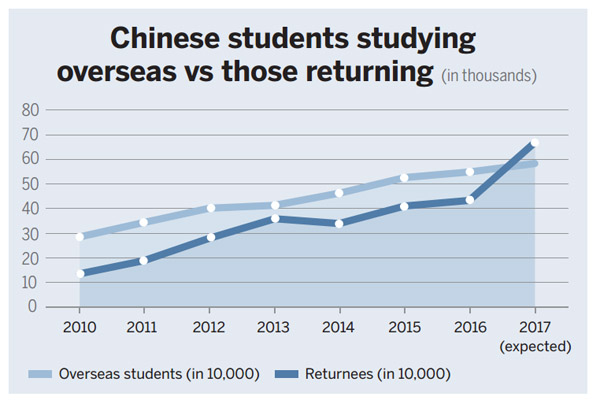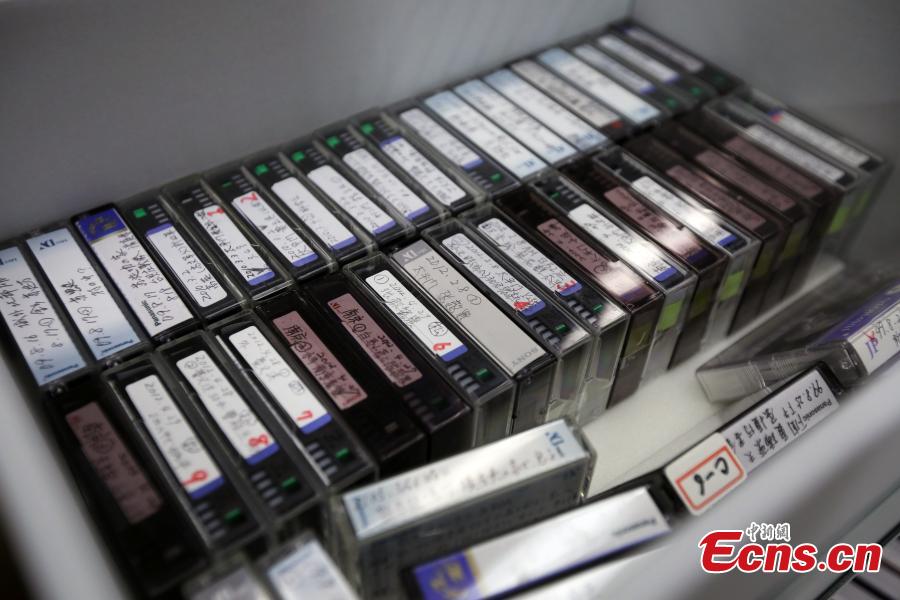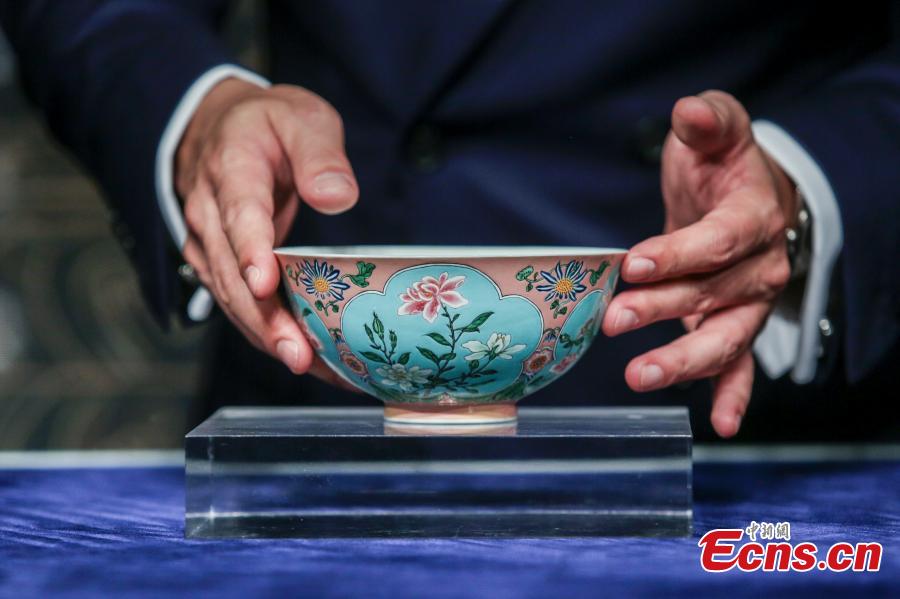
Recruiting talent
"Although the environment for research in the U.S. is still better than China, the government is making constant efforts to improve conditions for doing research," said Zhang Shiyi, who received his postdoctorate in biological and mechanical engineering from the Massachusetts Institute of Technology.
Zhang also benefited from the Thousand Talents Plan in 2015 and decided to join the nanobiomaterials department of Shanghai Jiao Tong University as a teacher and researcher.
"In the U.S., researchers and professors are facing funding shortfalls, but in China, they are facing the difficulty of recruiting talent," he said.
Zhang said many Chinese PhD candidates and postdoctoral scholars at U.S. universities no longer see becoming a faculty member at a U.S. university as their first option.
"I've been back in China for a year and I'm glad that I decided to return - especially since I have more time to spend with my family and friends now," he said.
Besides leadership, professional or technical positions in universities and research-and-development institutes, the Thousand Talents Plan also covers talented people willing to work at State-owned enterprises and State-owned commercial and financial institutions.
"While overseas Chinese students once coveted a full-time job in Silicon Valley and a green card, now they look to career opportunities back in China," said Jay Wu, the co-founder of Global Career Path, a startup based in Silicon Valley that specializes in matching talent in the U.S. with Chinese businesses. "This is because the Chinese government has been heavily investing in technology and innovation, which encouraged lots of Chinese companies to expand globally and make efforts to develop their own technologies - where the top overseas talents are becoming a driving force and key factor," he said.
Global Career Path has been matching Chinese overseas talent in the U.S. with Chinese tech titans such as JD, Alibaba, Tencent and Huawei since 2015. "These companies are specifically looking for PhD students with strong technical backgrounds and engineers who have worked in Silicon Valley for an extended period of time," said Wu.
He said that while undergraduate and graduate programs at top Chinese universities are as well-developed as universities in the U.S., PhD programs and postdoctoral programs in the U.S. are still more advanced than those in China.
"Students with a PhD or higher degrees are more attractive because they have more experience in research and development and they can also bring a global vision and thorough understanding of the most advanced cutting-edge technologies," Wu said. "And at the same time, they are also attracted by the Chinese government dangling financial incentives for technology innovations and the rapid development of Chinese tech giants."
A sense of home
"(Chinese companies) are offering faster-growing salaries, more opportunities to get to management level if you have obtained higher degrees such as a PhD or MBA, and at the same time you can be closer to your family and friends - a sense of home," said Jacky Chen, a PhD student in computer science at the University of California, Berkeley, who has stayed in the U.S. for about seven years since starting his undergraduate studies.
He said that China has made huge progress in technological innovation in the past few years. "Every time I went back to China, I saw so many changes - the rapid growth in mobile payment, share bikes, e-commerce and especially artificial intelligence ... I was surprised and also want to participate in it," Chen said.
As an engineer, he said what attracts him most about returning to China is the announcement that billions will be invested in artificial intelligence.
The total output of China's information-technology industry grew by 10 percent year-on-year in 2016. And while overall GDP growth has slowed in more recent months, large tech companies such as Tencent and Alibaba are still expanding exponentially. The two companies are now worth more than $1 trillion combined.
"Chinese companies are catching up really fast. One of my friends who graduated last year decided to take a position at Alibaba in Hangzhou because big companies like Alibaba, Baidu and Tencent are offering very competitive salaries - as much as Google and Amazon offer here in the U.S. - to attract outstanding engineers to join their research and development departments," said Chen.
He said he had started to look for positions in China and attended several job fairs in the U.S. hosted by Chinese companies.
"If I cannot find my dream job in China, I will consider applying for jobs with Tencent and Baidu's U.S. labs, and then relocate to China, or join tech startups in China - they are growing really fast," Chen added.
"It's easy to find big career opportunities in China for PhD talent, especially at prestigious universities. The companies in IT, manufacturing, energy, medicine, (and the) chemical industry have a strong need for this sort of talent," said Ge Wei, a manager with Lockin China, an overseas recruitment company.
Some students prefer to stay a little longer
Many Chinese PhD holders at top American universities want to stay in the U.S. after they graduate, at least for a few years. Wang Minzhe is one of them.
"For students in our major, I think there are few students choosing to return directly after they graduate," said Wang, who is in his third year of a doctoral program at the University of Chicago. "I still prefer to stay in the U.S., at least for a few years to accumulate some working experience before I go back to China."
Wang obtained his undergraduate degree in mathematics and physics from Tsinghua University and a graduate degree in statistics from Stanford University. Now he works on topic modeling and nonnegative matrix factorization at the University of Chicago and hopes to become a data scientist after graduation.
"It's true that China has been catching up very fast with the U.S. in terms of innovation and technology," he said.
"But still, the most cutting-edge research and developments are in the West, especially for technology innovations."
Wang said he thinks if he can work for a leading tech company in the U.S., it will give him more choices for his career development.
"Everyone knows there is a glass ceiling for Chinese employees in the U.S., especially in tech companies," he said. "But it's also true that for entry-level positions, the U.S. companies offer more attractive salaries and benefits."


















































